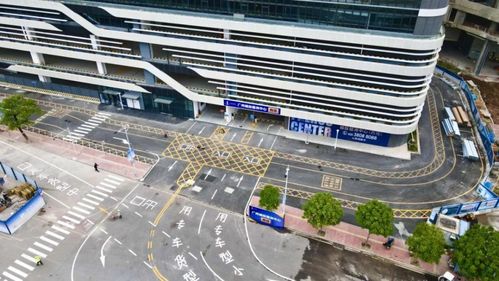
#广州餐饮服务简介
Title: Enhancing Efficiency and Quality in Guangzhou's Catering Industry through Logistics Management Systems
In the bustling city of Guangzhou, where culinary delights abound and gastronomic experiences are revered, the efficient management of restaurant logistics plays a pivotal role in ensuring customer satisfaction, optimizing operations, and maximizing profitability. A robust catering logistics management system serves as the backbone of the industry, streamlining processes, minimizing waste, and enhancing overall efficiency. Let's delve into the intricacies of such a system and its significance in the context of Guangzhou's vibrant culinary landscape.
Understanding Catering Logistics Management Systems
Catering logistics management systems encompass a range of processes and technologies designed to facilitate the seamless flow of goods and services within the food service industry. These systems integrate various elements, including inventory management, procurement, transportation, distribution, and warehousing, to effectively meet the demands of restaurants, cafes, and other dining establishments.
Key Components and Features
1.
Inventory Management
: Central to any logistics system is the efficient management of inventory. Advanced software solutions enable realtime tracking of stock levels, ingredient usage, and expiration dates, allowing restaurants to optimize inventory levels, minimize waste, and ensure freshness.2.
Procurement Optimization
: Leveraging data analytics and supplier relationships, catering logistics systems assist in optimizing procurement processes. Automated ordering, supplier performance monitoring, and cost analysis tools enable restaurants to source ingredients efficiently while maintaining quality standards and costeffectiveness.3.
Transportation and Distribution
: Timely delivery of ingredients is essential for maintaining the freshness and quality of dishes. Logistics systems facilitate efficient route planning, vehicle scheduling, and delivery tracking, ensuring that ingredients reach their destination promptly and in optimal condition.4.
Warehousing and Storage
: Effective utilization of storage space is crucial for reducing costs and minimizing waste. Catering logistics systems employ intelligent warehousing solutions, such as FIFO (First In, First Out) inventory management and temperaturecontrolled storage, to maximize space efficiency and preserve product quality.5.
Order Fulfillment and Delivery Management
: In an era dominated by food delivery services, seamless order fulfillment and delivery management are imperative. Logistics systems integrate with online ordering platforms, enabling automated order processing, delivery route optimization, and realtime tracking, thereby enhancing customer satisfaction and retention.Benefits for Guangzhou's Catering Industry
1.
Improved Operational Efficiency
: By automating repetitive tasks and optimizing resource allocation, catering logistics systems streamline operations, reducing manual errors and increasing productivity. This efficiency translates into shorter lead times, faster order processing, and enhanced service quality.2.
Cost Reduction and Waste Minimization
: Through better inventory management, procurement optimization, and waste reduction strategies, restaurants can significantly lower operating costs while minimizing food wastage. This not only improves profitability but also aligns with sustainability goals, contributing to environmental conservation efforts.3.
Enhanced Customer Experience
: Prompt delivery, consistent quality, and accurate order fulfillment are paramount in the competitive restaurant industry. By leveraging logistics management systems, restaurants can meet customer expectations more effectively, leading to higher satisfaction levels, positive reviews, and repeat business.4.
Adaptability and Scalability
: As the catering industry evolves and expands, the scalability and adaptability of logistics systems become increasingly important. Modular software architectures and cloudbased solutions allow restaurants to scale their operations seamlessly, accommodating growth and changing market dynamics.Implementation Considerations
While the benefits of catering logistics management systems are undeniable, successful implementation requires careful planning and consideration of various factors:
1.
Customization and Integration
: Every restaurant operates differently, necessitating customizable solutions that align with specific requirements and workflows. Seamless integration with existing software platforms, such as POS systems and accounting software, is also crucial for data consistency and operational efficiency.2.
Training and Change Management
: Introducing a new logistics system entails training staff members and adapting to new processes. Comprehensive training programs and effective change management strategies are essential for ensuring smooth adoption and minimizing disruptions during the transition phase.3.
Data Security and Compliance
: With sensitive customer and business data being handled within logistics systems, robust security measures and compliance with data protection regulations are paramount. Encryption, access controls, and regular audits help mitigate security risks and safeguard confidential information.4.
Continuous Improvement and Innovation
: The catering industry is dynamic, with evolving consumer preferences and technological advancements shaping its landscape. Continuous improvement initiatives and a culture of innovation are essential for staying ahead of the competition and meeting the changing needs of customers.Conclusion

In conclusion, the implementation of a comprehensive catering logistics management system holds immense potential for enhancing efficiency, quality, and competitiveness within Guangzhou's vibrant culinary scene. By leveraging advanced technologies and best practices in logistics management, restaurants can optimize their operations, reduce costs, and deliver exceptional dining experiences to customers. Embracing innovation and embracing change are key to unlocking the full benefits of such systems, positioning Guangzhou's catering industry for sustained growth and success in the years to come.









评论列表 (0)